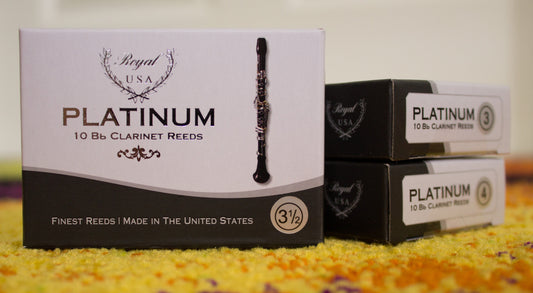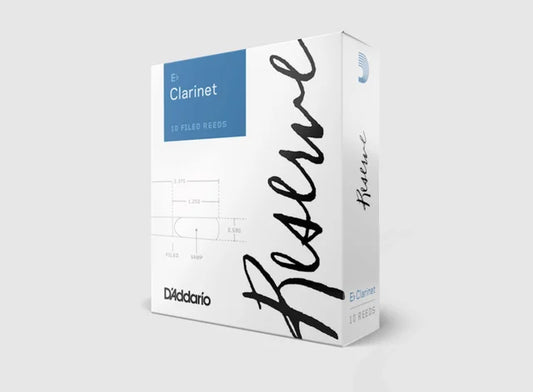Leaving school and joining the real working world is a huge change. I am so grateful to have a job not just in music but working with clarinets specifically. While I’ve only worked this job for one month as I write this post, and still have plenty to learn, I have already learned quite a bit. So, I came up with a list of five big things that I have learned and would like to share with those who are interested in music careers beyond the classroom and stage.
1. Distribution

The first thing I learned was the process of distributing clarinets from the factory, which includes packing and unpacking clarinets. This seems like a basic procedure but it is so important to be thorough in the packing and unpacking process because the next person to touch that package will probably not treat that package like there is a $3000-$8000 instrument inside of it, no matter how many fragile stickers you slap on it. When we receive clarinets specifically for our shop inventory, it is my job to check the seal, balance the spring tension as necessary, lubricate the mechanism, and get it ready for play testing. Final adjustments will be done by Brian. Most of the time, as long as the instruments are packed well, the adjustments we need to make are minimal. Depending on who is receiving the instrument, Brian and I will modify anything else necessary to fit the needs of the customer. Authorized dealers typically receive instruments in close to factory condition as most will apply their own specialized setup. This process is a huge part of my job.

2. Variety
I also learned the value of playing on different brands of instruments. I grew up playing Buffet and I now own a Selmer Bb and a Yamaha A clarinet. In addition to my own clarinets, there are a variety of brands and models of clarinets that come through our shop. Brian also makes and sells his own barrels, so I have learned to assess the barrel’s effect on how a clarinet responds and sounds. Because of my experience playing on different instruments, I can decide with clarity what factors make a clarinet sound and feel the way they do.

3. Language & Communication

I had to learn which words to use to describe different factors that I was hearing or feeling in a clarinet. This may sound obvious, but it is actually very complex. Speaking the language is crucial because this is how we decide what we need to do to make the clarinet feel and sound the best that it can. Brian and I try to use objective language when discussing a clarinet. For example, rather than saying “this clarinet feels hard” or “this clarinet sounds bright”, we instead talk about response, resistance, back pressure, resonance, flexibility, and control. We have had many conversations about how we define these words and what specific aspects of the clarinet they do and do not refer to. Everyone seems to have a slightly different definition for these words, so getting on the same page has been a fun challenge. Although speaking the same clarinet language between the two of us is important, it is equally important for us to be able to communicate with clients about their clarinets. This means that we ask many questions to clarify and accurately understand how we can best help them. I think it is fascinating that our language and the clarinet itself is constantly developing, which means these conversations about the intricacies of communication will never be complete.
4. Factors & Diagnosing



Learning about how many different factors can contribute to one aspect of how a clarinet sounds and feels has been my biggest learning curve. For example, let’s pretend that you feel that the right hand joint is more resistant and you hear that the right hand notes take longer to respond. One factor could be a leaky pad on the bottom of the upper joint or maybe the top of the lower joint. We see this a lot with the infamous "1+1" Bb/Eb bridge adjustment. A chipped tone hole may prevent an otherwise perfect pad from sealing properly. Maybe there is weak spring tension somewhere that doesn't allow for the necessary light pressure on the tone hole. Another factor could be that the middle tenon and cork are not sealing properly. Those are several potential factors that could contribute to one symptom. In addition, I have learned to use different tools and methods to help me determine what exactly the issue is. For example, I have gotten very familiar with a tool called the feeler gauge which helps me assess how well a pad and tone hole are sealing together. However, every tool has limitations, and a feeler gauge may won't tell me if there is a chip in a tone hole that's preventing a proper seal. A visual inspection is necesasry. In addition, Buffet clarinets are not built the same as Selmers, Royal Globals, Yamahas, etc. I continuously adapt and am sure to be thorough and observant when working with a variety of clarinets and getting to the bottom of any issues that arise.
5. Working in Music

There are many great music jobs beyond the mainstream professor job and/or orchestral job, and this is one of them. I work with people who value honesty and integrity which shows in their craftsmanship and the way they do business. This seems like that should be a given, but these qualities should not be taken for granted. I get to play many clarinets and clarinet accessories which helps me serve the musicians buying and selling Royal Global clarinets, our refurbished / rental inventory, and all of Brian’s products. I will get to network and meet so many new people who also work to serve performing musicians at all levels. When I am play-testing instruments and accessories with Brian, we will play duets at the end of the night. We will record bits and pieces and post it to social media as well. Despite having already learned a lot, I still have so much to learn about this aspect of the music industry. And in addition to these five points, I’ve learned to be incredibly grateful to have a job working with and around clarinets and music, because not everyone gets an opportunity like this after graduating. This job is great because it has a little bit of everything to offer, and it's all about clarinet.









